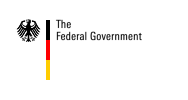Twenty-five years after the virus was first identified, the number of people living with HIV continues to rise in many parts of the world. In 2006 almost 40 million people were infected. Another 4.3 million new infections were recorded. Since the beginning of the HIV/AIDS pandemic, about 30 million people have lost their lives to the disease.
In Germany too the number of new infections was up. The mains reason for this, according to the Minister of Health, Ulla Schmidt, is the drop in risk awareness, particularly among young people.
In Eastern Europe and Central Asia, 270,000 people became infected with HIV in 2006, according to UNAIDS. This is a 70 percent rise as compared to 2004.
>> World AIDS Report 2006
The action plan contains precise targets and lays out concrete steps which are to be put into practice by 2010. The plan was drawn up jointly by the Federal Ministry of Health and the Federal Ministry for Economic Cooperation and Development. An inter-ministerial task force will be responsible for implementing it. The action plan is to help halt the spread of HIV/AIDS by 2015.
Priorities: Prevention and health education
The Federal Ministry of Health stressed the fact that the fight against HIV/AIDS is more than just a health policy issue. It is a task that needs the support of society as a whole. The absolute essential is prevention. "We are placing our faith in both target-group-specific measures and on close cooperation between federal states, local authorities and private stakeholders," explained the minister.
The target groups include people travelling to areas where HIV/AIDS is particularly prevalent. Before German tourists visit a country that is particularly hard hit by AIDS they should be informed more fully than has hitherto been the case about the risks involved.
People from migrant families living in Germany too are to be addressed. In this context it is vital to overcome the linguistic and cultural barriers to educating people about HIV/AIDS.
Fighting AIDS at global level
In the Millennium Development Goals the international community has undertaken to stem the spread of AIDS by 2015 and to gradually reverse the trend. The German government intends to play an active part in this. The action plan now adopted focuses the activities of central government.
The Minister for Economic Cooperation and Development, Heidemarie Wieczorek-Zeul, has pledged to continue financial support for the Global Fund to Fight AIDS, Tuberculosis and Malaria (GFATM). GFATM funds have already saved 1.5 million lives.
The G8 summit, which brings together the leading industrial nations, to be held this summer in Heiligendamm will also be looking at Africa, the continent which has been worst ravaged by AIDS.
Protecting women and children
Women are disproportionately badly affected by the rising numbers of new infections around the globe. More than 15 million children in Africa have already been orphaned by AIDS.
The fight against AIDS is much more than just a medical campaign. Wieczorek-Zeul advocates strengthening the rights of women and enhancing their status within society. As the figures prove, when women are disadvantaged by society AIDS spreads much faster among this group.
